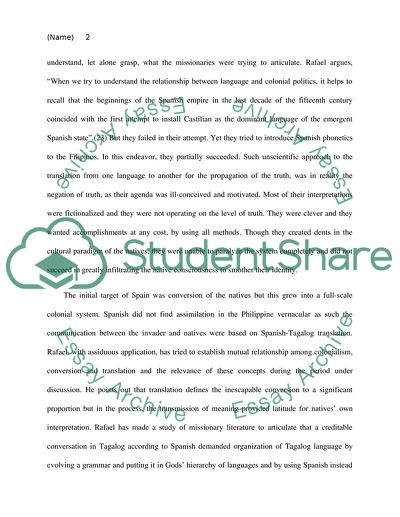Cite this document
(Contracting Colonialism On The Example Of Philippines Book Report/Review, n.d.)
Contracting Colonialism On The Example Of Philippines Book Report/Review. Retrieved from https://studentshare.org/history/1806552-book-report-and-analysis-vicente-rafael-contracting-colonialism-philippines
Contracting Colonialism On The Example Of Philippines Book Report/Review. Retrieved from https://studentshare.org/history/1806552-book-report-and-analysis-vicente-rafael-contracting-colonialism-philippines
(Contracting Colonialism On The Example Of Philippines Book Report/Review)
Contracting Colonialism On The Example Of Philippines Book Report/Review. https://studentshare.org/history/1806552-book-report-and-analysis-vicente-rafael-contracting-colonialism-philippines.
Contracting Colonialism On The Example Of Philippines Book Report/Review. https://studentshare.org/history/1806552-book-report-and-analysis-vicente-rafael-contracting-colonialism-philippines.
“Contracting Colonialism On The Example Of Philippines Book Report/Review”, n.d. https://studentshare.org/history/1806552-book-report-and-analysis-vicente-rafael-contracting-colonialism-philippines.


